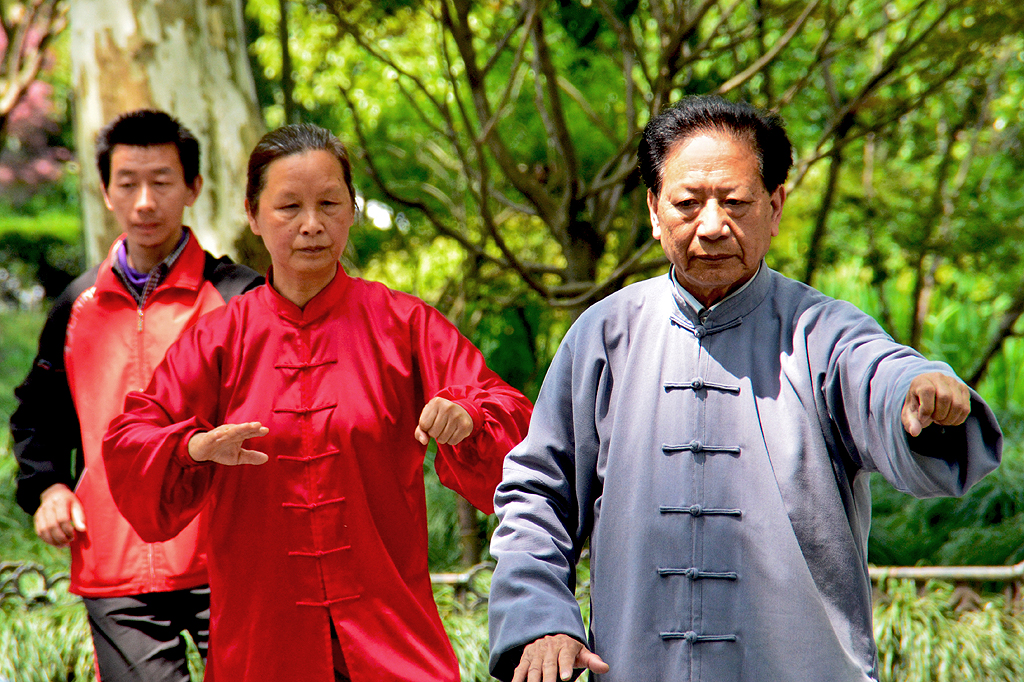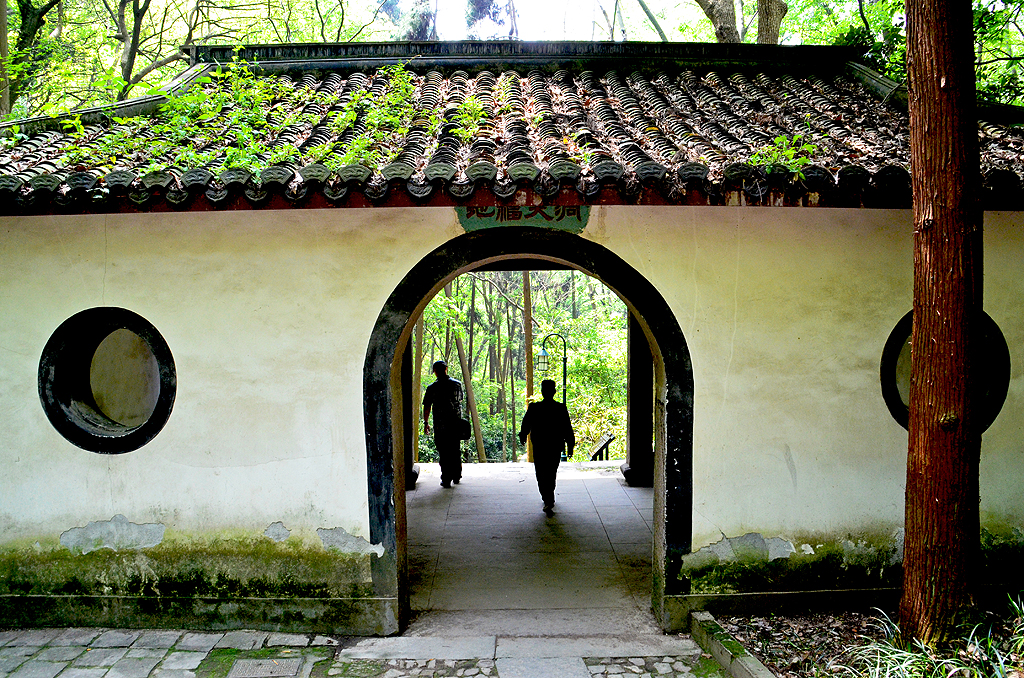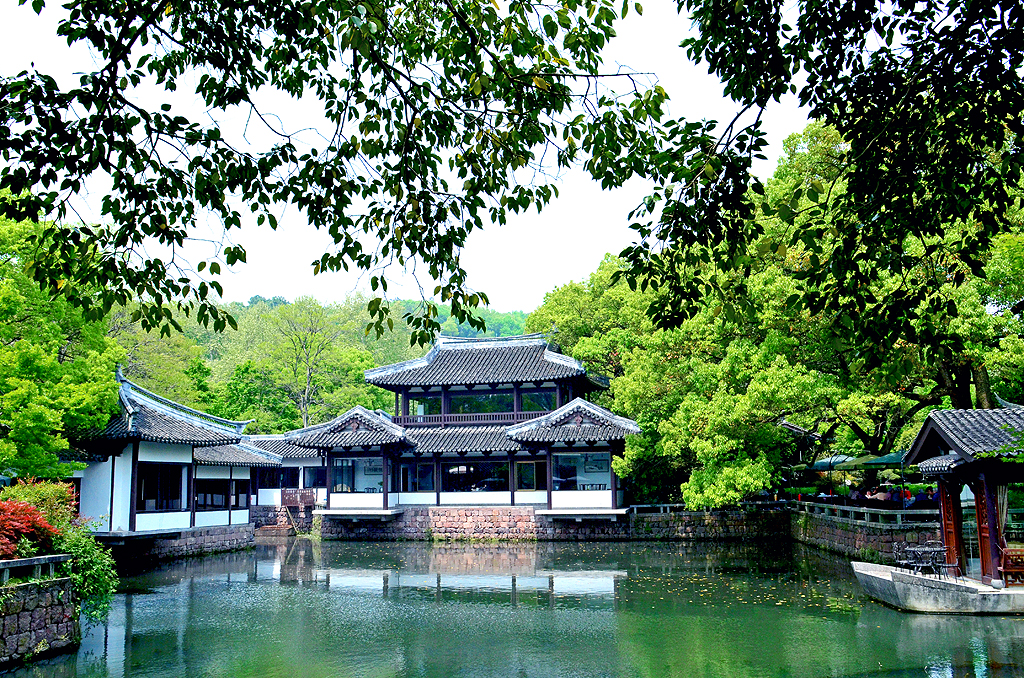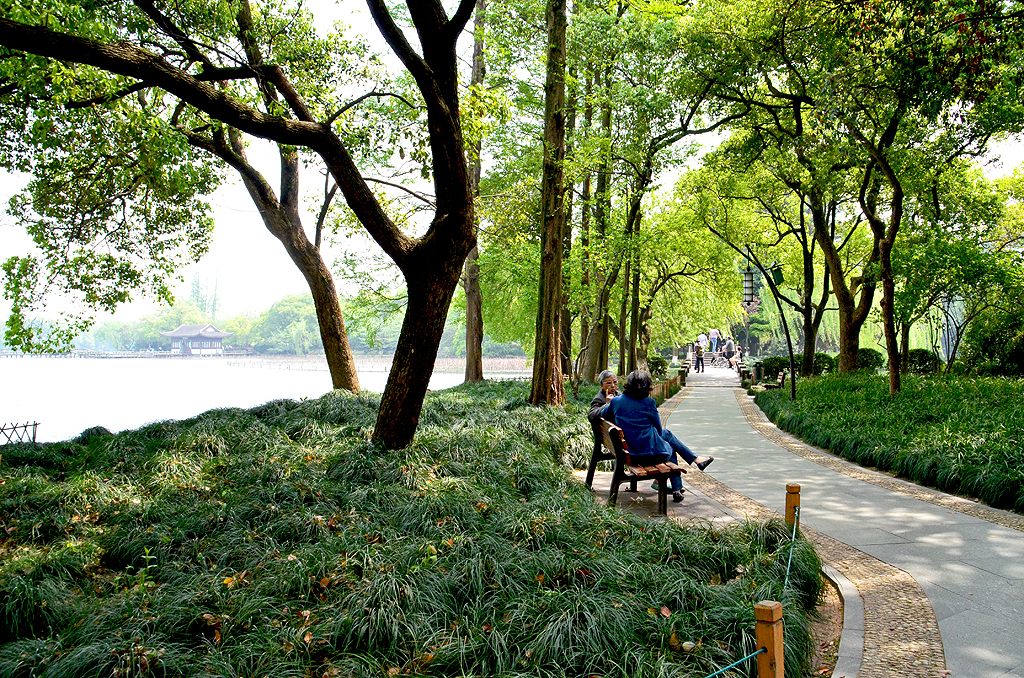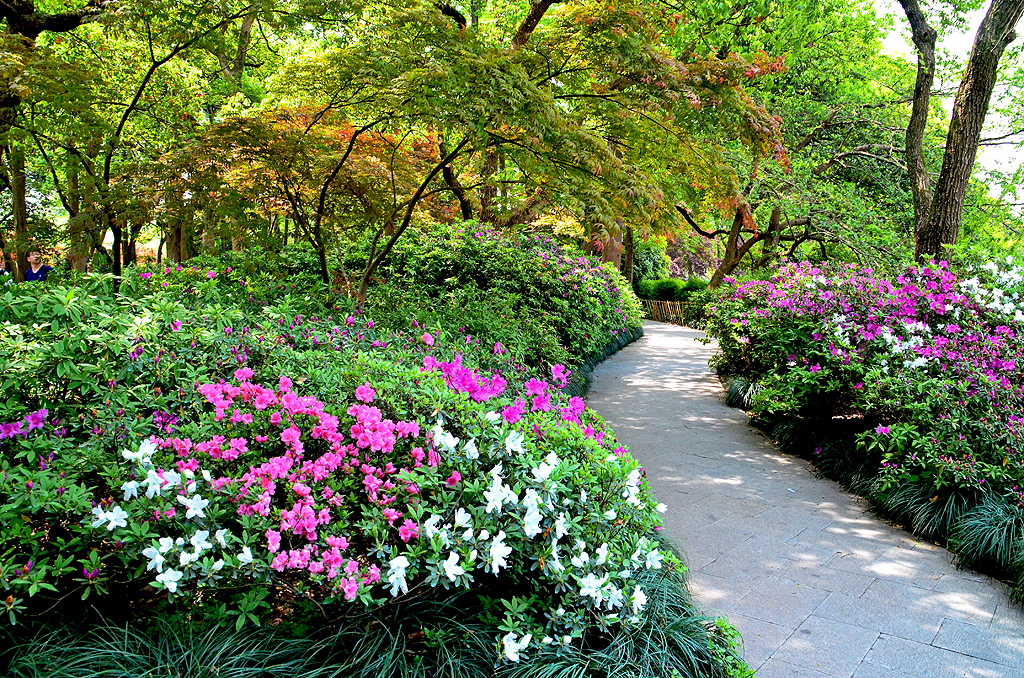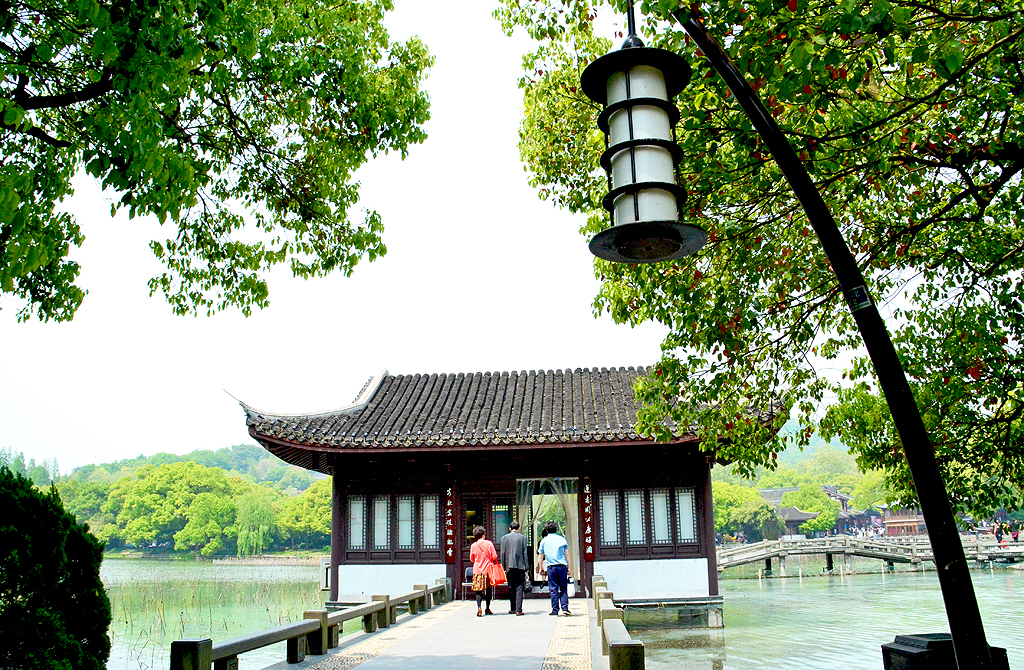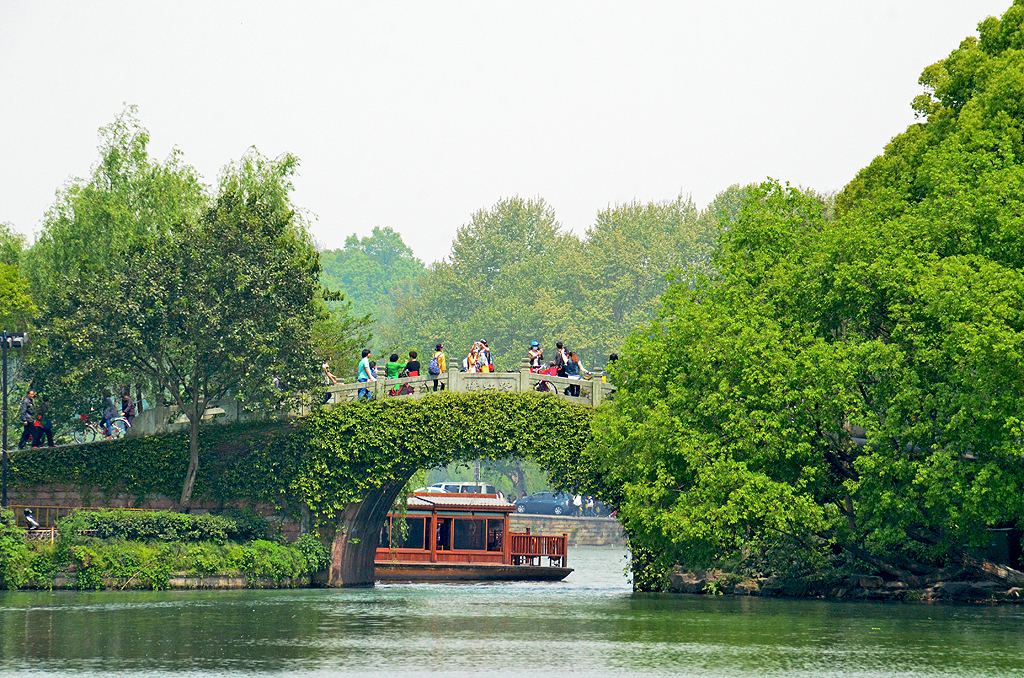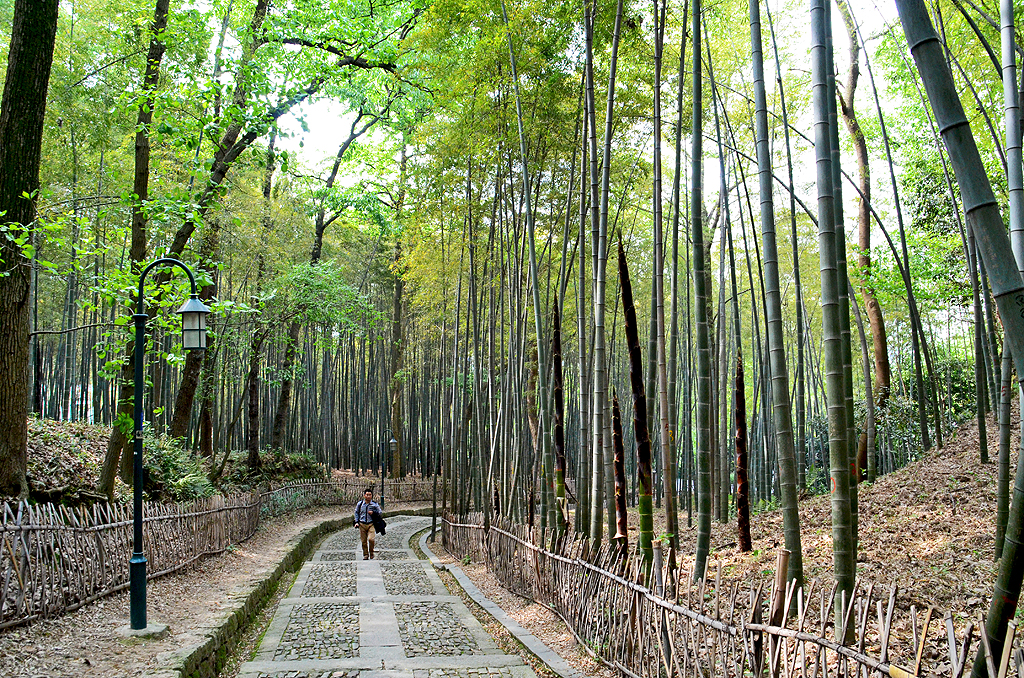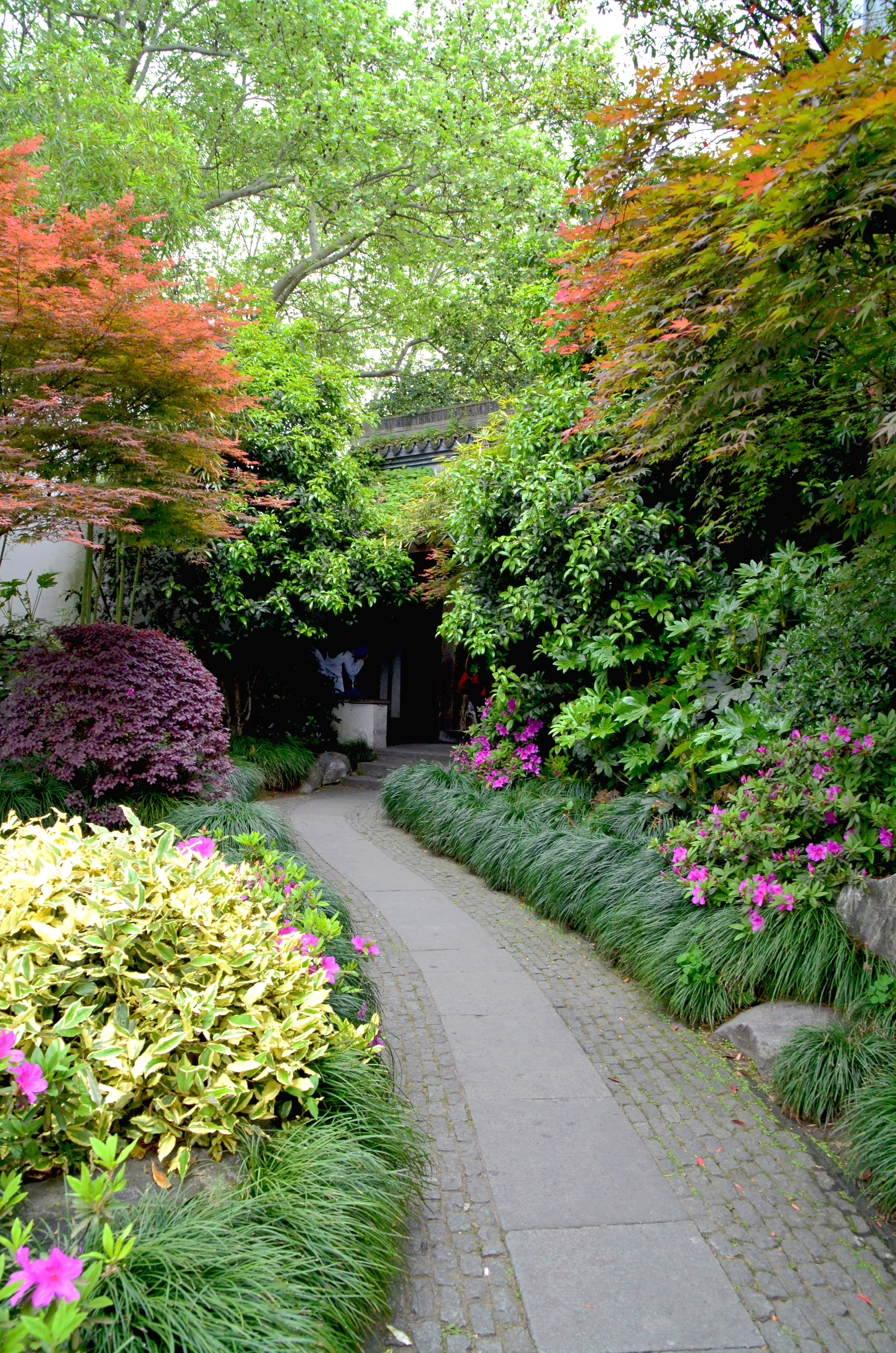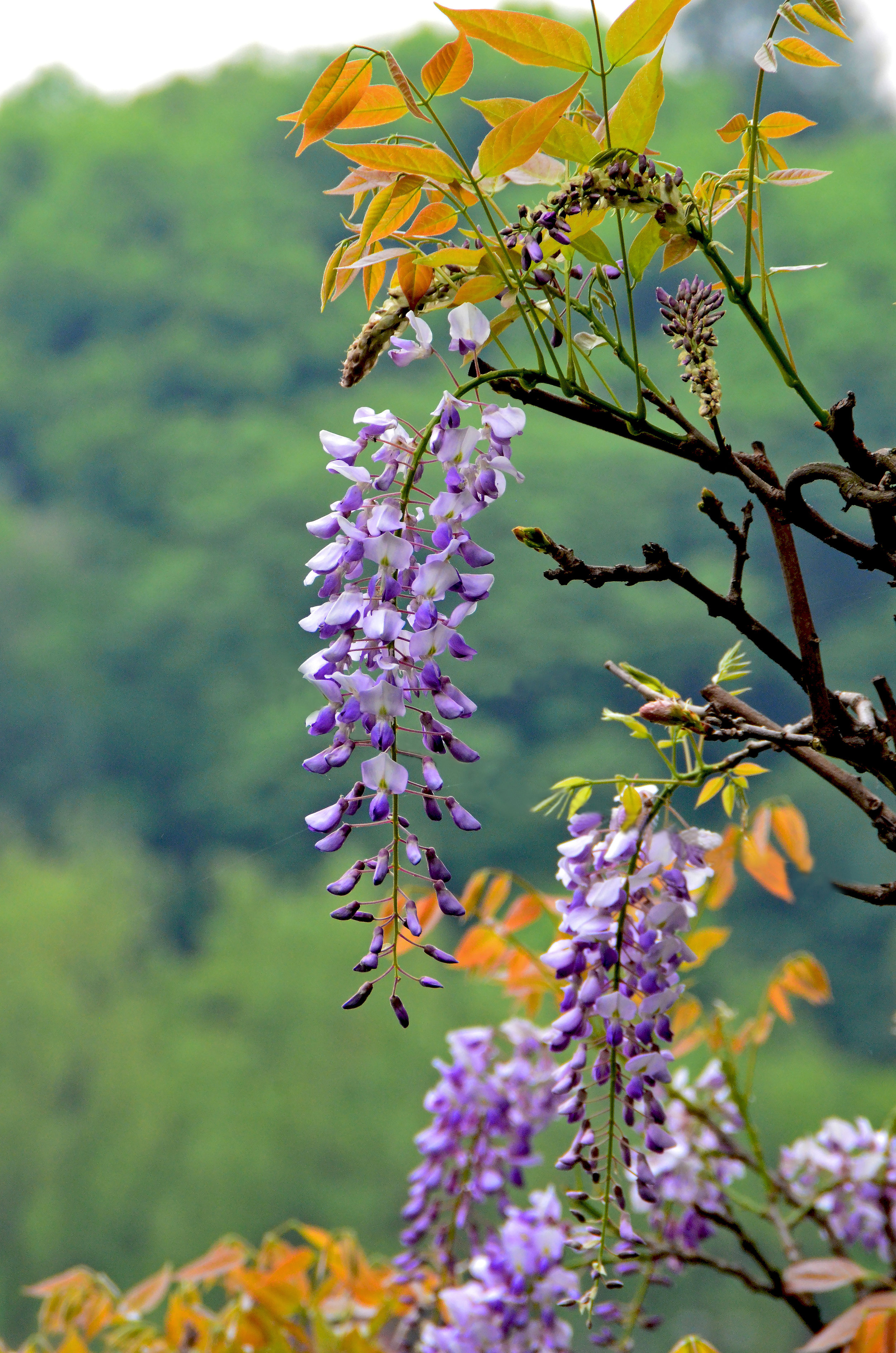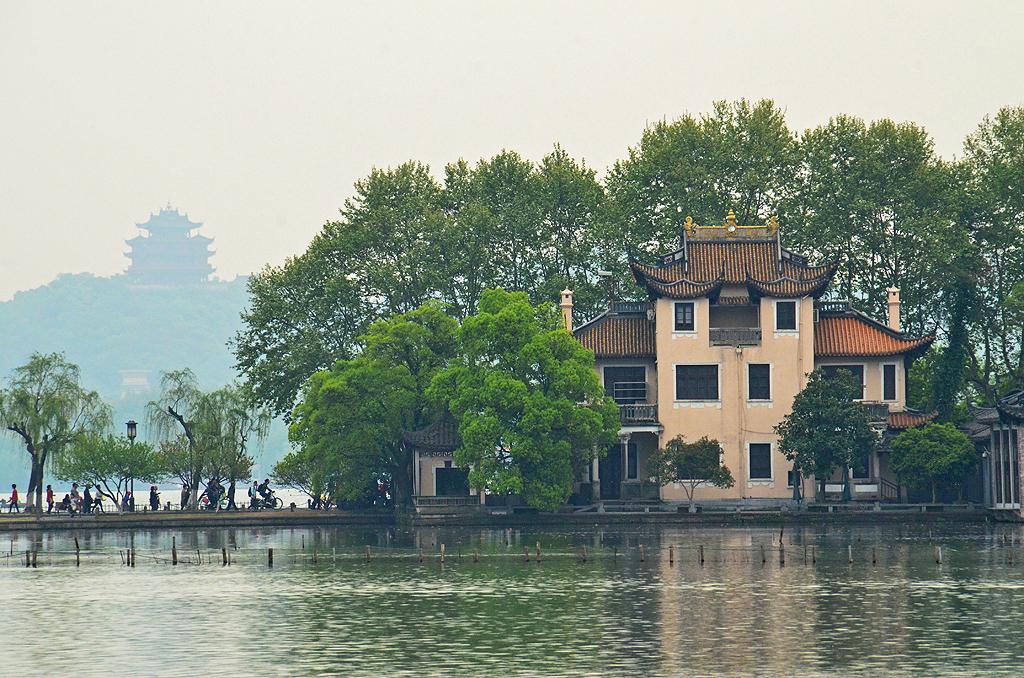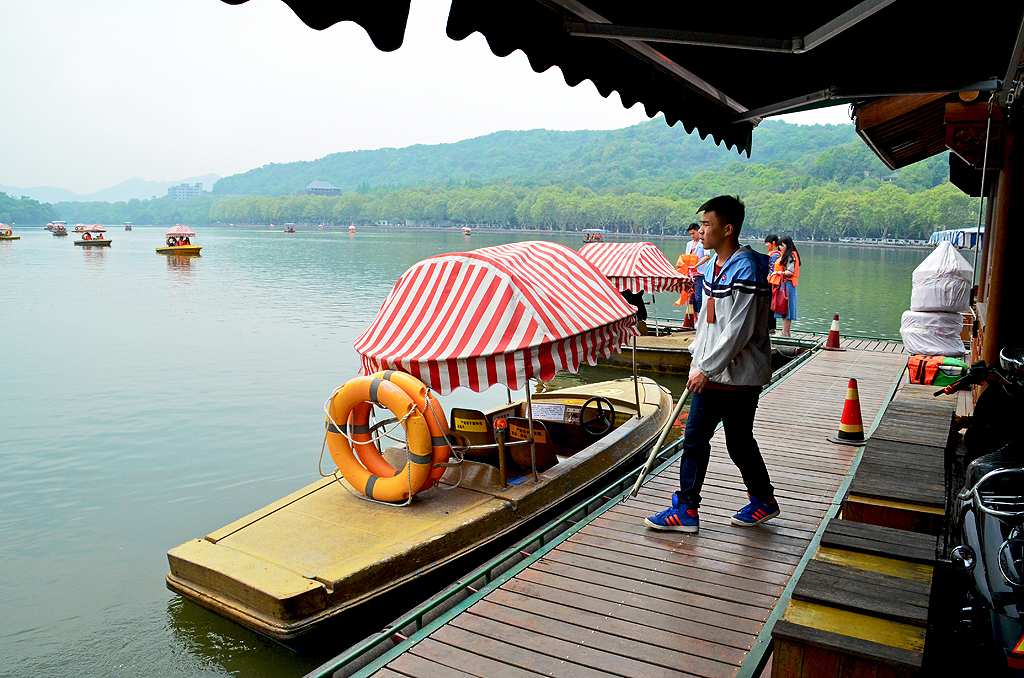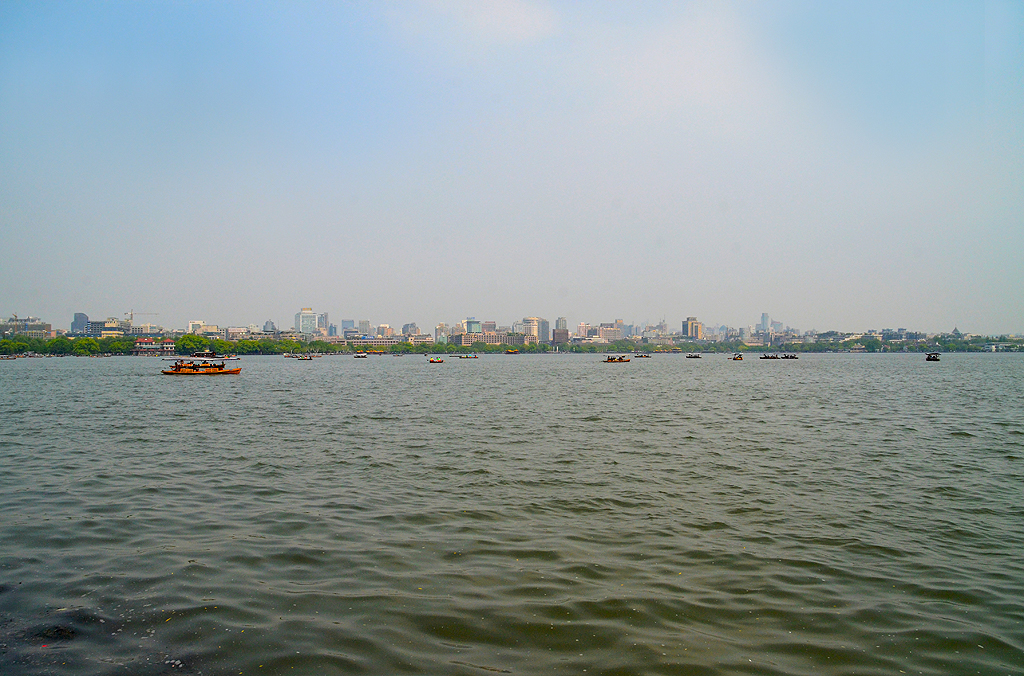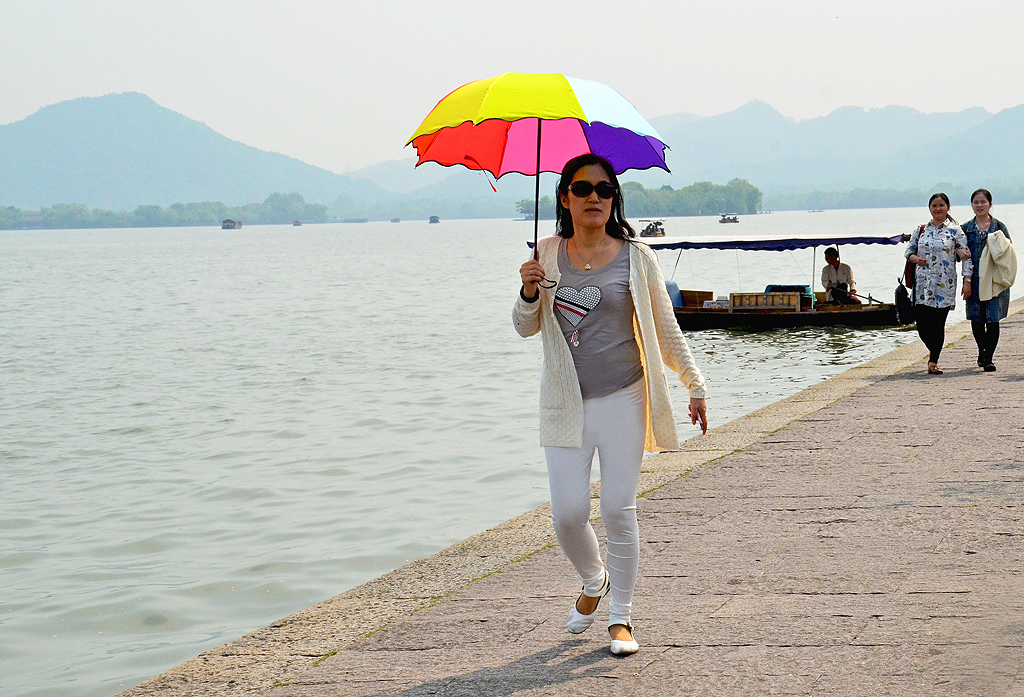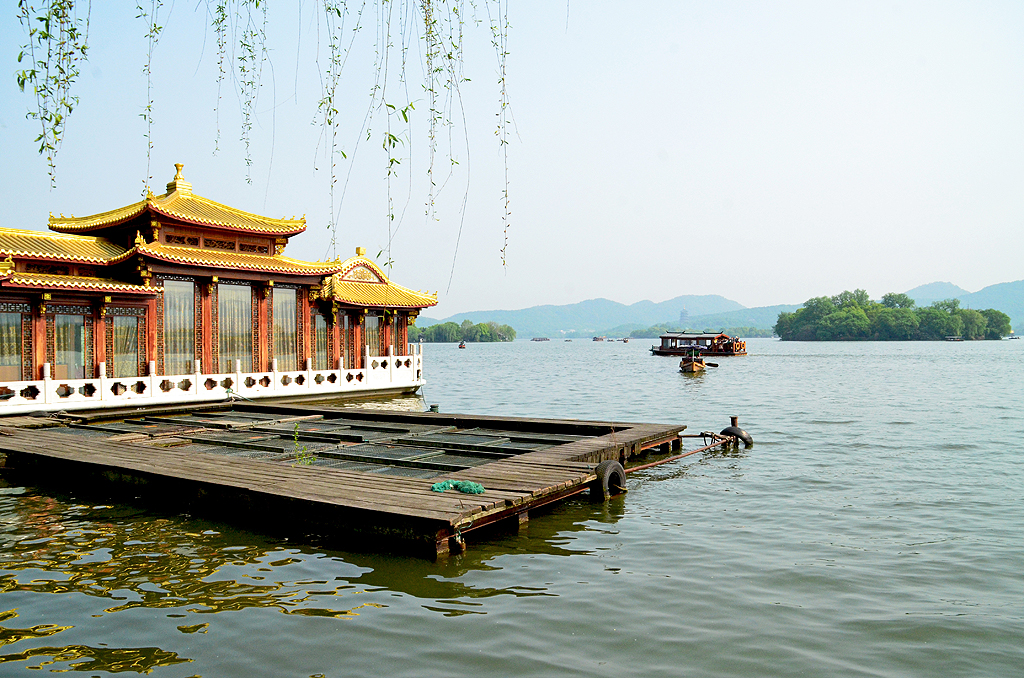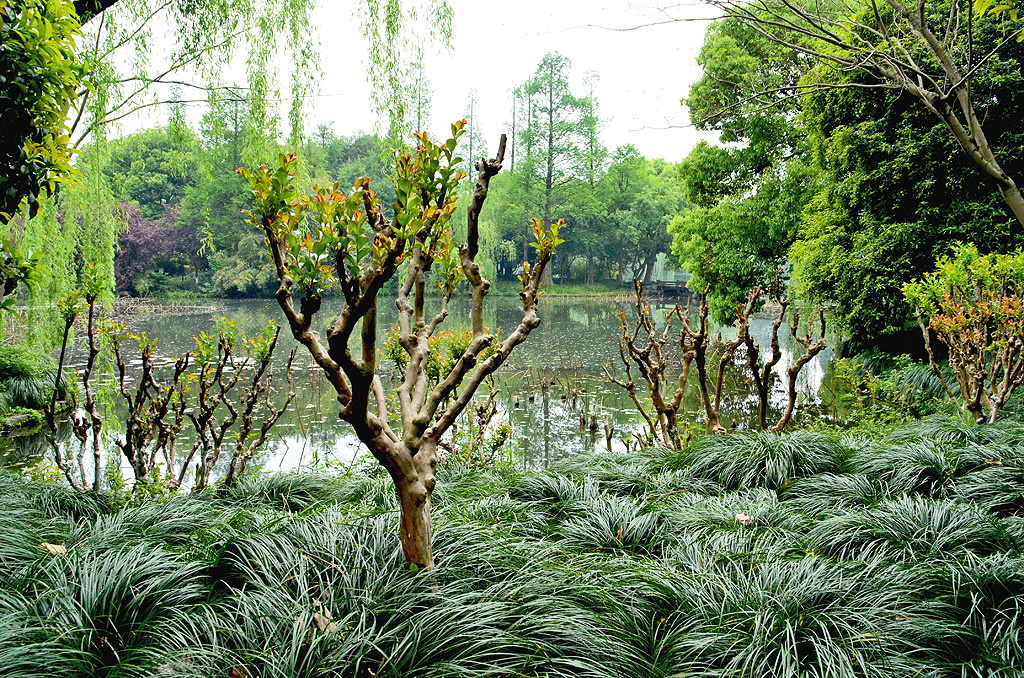HANGZHOU
Our third city in China became a solid favorite. Not hard to understand why Marco Polo called it the “finest and most splendid city in the world” (at the time). We arrived in Hangzhou with little knowledge and no expectations and left with fond memories of boat rides, garden walks, forest hikes and ice cream. We spent the majority of our time exploring West Lake, a large, central area ringed by the city’s diverse boroughs–from quiet, colonial-era neighborhoods to the bustling, modern downtown.
Our hotel was north of the lake, across from a local park which people inhabited at all hours—playing, exercising, performing music, socializing. We became fond of drinking Longjing tea and watching children play with sticks. We whiled away entire afternoons strolling the causeways that bisect West Lake, in search of at most, a shady bench. Following the example set by the scores of serene locals that surrounded us each day, our minds and bodies learned to slow down in Hangzhou, inspiring us to make more time for “slow living” when we returned home. Strolls, naps, tea, idle sitting.

One day, we came across a woman in a lakeside pavilion singing a folk song into a karaoke mic. She was surrounded by an appreciative throng, and something about her voice was mesmerizing. The way in which she sang—effortlessly and with such pleasure, brought us to a halt and I recorded her as we joined the audience. Take a moment to listen to her, below. The songbirds, croaking frogs and babbling brook are all field recordings captured throughout West Lake’s ethereal gardens.
More photos of Hangzhou ...



